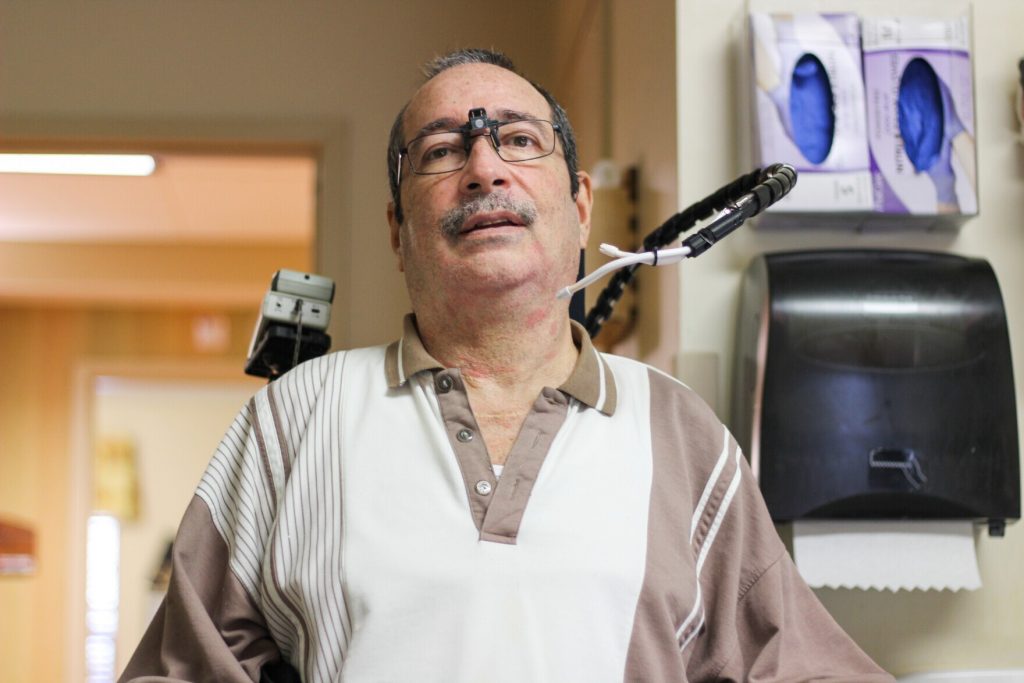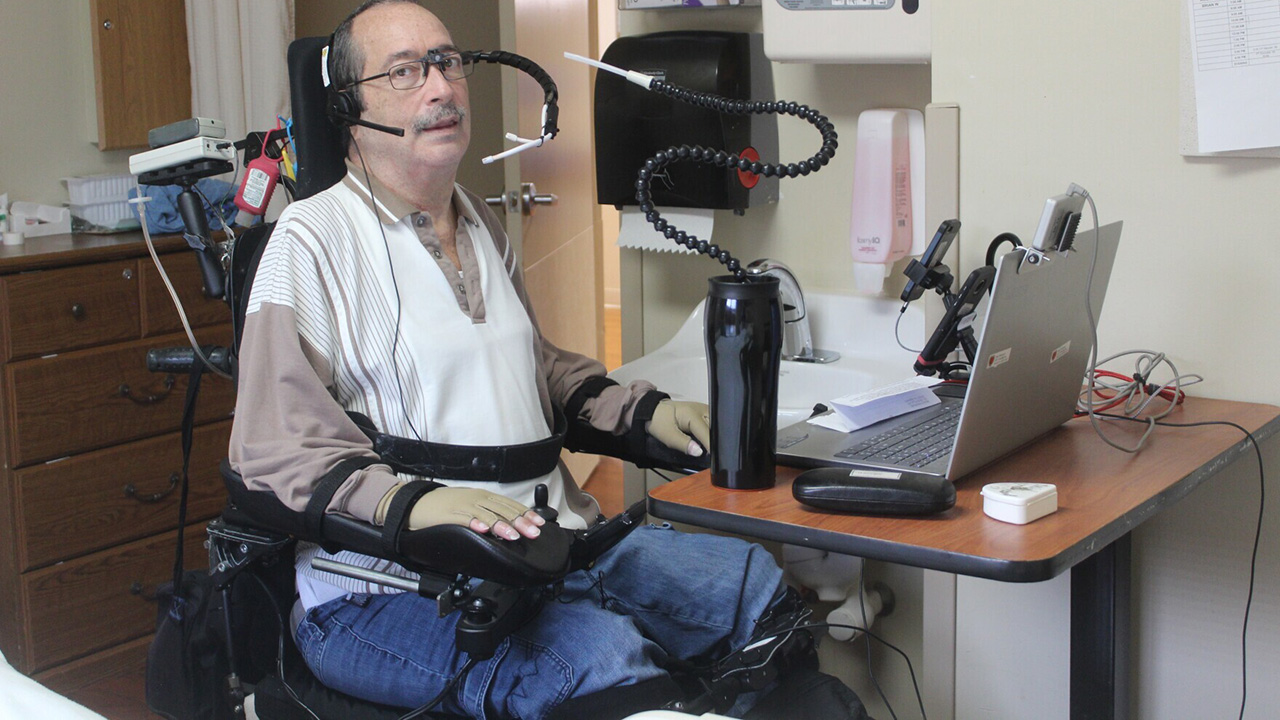Michigan’s car insurance law “destroyed my life,” crash survivor says
Brian Woodward is the kind of success story Michigan’s former no fault law was designed for. After a car crash left him a quadriplegic at age 24, he didn’t have to sue to get his care paid for or spend the rest of his life in a nursing home.

Brian Woodward became quadriplegic after a car crash in 1983. Until recently, he lived and worked at home, and was active in his community. But changes to the state's no fault law forced him to move into a nursing home. "It's destroyed my life," he says.
Michigan’s system of care for severely injured car crash survivors is collapsing. Agencies that care for survivors with traumatic brain injuries and spinal cord injuries are being driven out of business by changes to Michigan’s no fault insurance law.
Brian Woodward is one of many people who are now suffering tragic consequences. Woodward is the kind of success story Michigan’s former no fault law was designed for. After a car crash left him a quadriplegic at age 24, he didn’t have to sue to get his care paid for or spend the rest of his life in a nursing home.
Instead, with the help of one on one caregivers, he went to college.
“I got a bachelor’s in business and computer science and I graduated magna cum laude from Northwood,” he says.
The new law set a target for car crash survivors of “maximum recovery.” In Woodward’s case, that meant a full life. He got a job with a contractor for a Big Three automaker, paid taxes, bought a house.
He coached Little League and mentored kids as well as other quadriplegic crash survivors. At church, he sang in the choir, was engaged in the community and hunted and fished.
But “on July 2, the world came crashing down,” he said of the day he lost his care at home. Michigan’s new insurance law “has actually destroyed my life.”
That’s when his agency said they couldn’t afford to take care of him anymore. The new no fault law cut their reimbursements by nearly half.

“The life as I knew it was completely gone in a moment,” he says.
One of his caregivers had been with him for 20 years, another for 26.
“Those are like your best friends, you develop your own little family, with the people that take care of you,” Woodward says. “And it was very heartbreaking and heart-wrenching to lose them like that.”
Without caregivers, he also lost his job of 30 years. Since the summer, he’s lived in a string of understaffed nursing homes. Quadriplegic people need vigilant care to stave off infections, pressure sores, blood pressure spikes and overheating.
“I ended up going to the hospital at least six or seven times throughout this ordeal, several of them were life threatening. I had sepsis twice,” Woodward says.
The facility he’s in now — Special Tree Neurocare Center — is better than the others, he says. But even so, if something goes wrong when he’s in his room alone, he’s paralyzed. He can’t just push a call button.
He’s praying that the politicians in Lansing do something before it’s too late. People have already died after losing care. He’s afraid he could be next.
Special Tree CEO Joe Richert says he “never thought it would get this far.”
He recently had to lay off 30 staff. He says his company has spent $7 million of its reserves. There’s not much left.
Richert calls the new no fault insurance law crazy, because it permits one highly profitable industry — car insurance — to drive another one that’s far less profitable out of existence. Companies like his are closing all around him. And vulnerable patients are losing care, even dying.
“You just can’t have folks who can’t move who are quadriplegics and just leave them in an empty building.” —Joe Richert, Special Tree
“It’s despicable,” he says. “It’s isn’t organized, but it’s essentially all coming together in a plan to destroy us. It’s evil. At least an evil outcome, even if their intentions aren’t evil.”
Richert says Gov. Gretchen Whitmer and a few key Republican leaders could put a stop to the debacle. There’s nearly $27 billion in the state fund that was set up to care for catastrophically injured car crash survivors.
But instead, the fund’s surplus is being used for a campaign stunt, he says. Every registered car owner will get a check this spring.
“So the governor can stay on her victory lap and give back $400 per vehicle before the election,” he says.
If nothing is done, and Special Tree has to close, Richert has no idea where his patients will go.
“You just can’t have folks who can’t move who are quadriplegics and just leave them in an empty building. Something’s gonna have to give,” he says.
Survivors, their loved ones, and care providers have pinned their hopes on a new bill with fairly strong bipartisan support that was introduced by Republican State Rep. Phil Green. The bill would significantly boosts payments for care, and could help agencies like Special Tree stay in business if it’s passed.
But time is running out.
Trusted, accurate, up-to-date.
WDET strives to make our journalism accessible to everyone. As a public media institution, we maintain our journalistic integrity through independent support from readers like you. If you value WDET as your source of news, music and conversation, please make a gift today.
